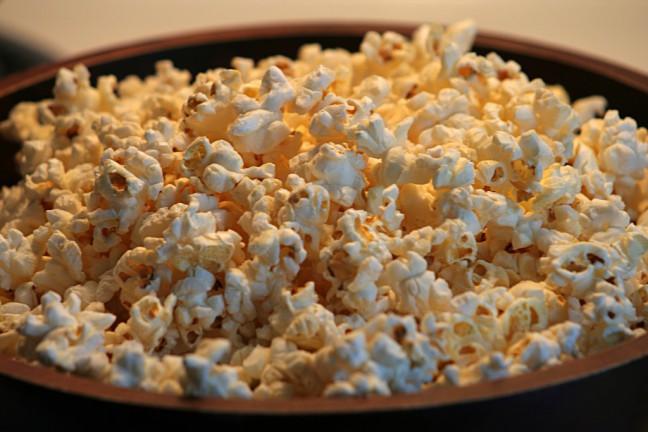Microwave popcorn: perhaps the most popular choice to accompany movie nights at home. This snack also seems like a perfect option during finals week because it’s so quick, easy and delicious!
However, unknown to many of us, several recent studies have suggested that pre-packaged microwave popcorn isn’t as great a guilt-free snack as many once thought.
As a first year dorm-dweller, I have personally been choosing microwave kettle corn as one of my go-to snacks and even meals. As you can imagine, I was planning on stocking up for finals time. Just recently, however, my mom shared some surprising facts with me about microwave popcorn that she learned while watching a health show. In fact, not one, but several health risks are associated with microwave popcorn.
First, although many of us savor the smell of those freshly popped kernels, the chemical that gives the popcorn its delicious odor is actually a synthetic butter flavoring added to the bags. The first red flag with that fact is that the word “synthetic” itself, obviously suggesting that the product is not completely natural. This poses a threat not only to the idea of clean eating, but also to one’s overall health. The chemical, called diacetyl, has been linked to lung problems in the makers, as the constant inhalation of the gas leads to destructive consequences. Even if you don’t work in a popcorn manufacturing factory, you’re actually still at risk to develop this so-called “popcorn lung” if you frequently make microwave popcorn.
Also, with increasing obesity rates in America, we as consumers should be aware of foods that can cause us to gain unwanted, unhealthy weight, which can then lead to dietary diseases. Most people have heard the term “trans fats,” and many are aware that this type of fat is “bad fat.” In fact, the Federal Drug Administration has determined that trans fats, or partially hydrogenated oils, are no longer “generally recognized as safe.” Putting some emphasis on this, the FDA isn’t just warning us that that these fats aren’t healthy, but it goes further in saying that they are not even considered safe to consume. This being said, the addition of trans fats to microwave popcorn in attempts to preserve it potentially does more harm than good.
Unfortunately, the problems don’t stop there. PFOA, the chemical that commonly lines the bags of the popcorn, can cause thyroid issues, high cholesterol and even bladder cancer. Bladder cancer! This chemical was labeled a “likely carcinogen,” and many of us aren’t even aware that we’re consuming it in our daily diets. We’re talking about a simple snack actually having the power to cause people to develop a type of cancer. Personally, I don’t think any food is enticing enough to convince me to risk developing any of these serious health issues.
Don’t worry though. All those years you have spent perfecting the art of cooking microwave popcorn will not completely go to waste! If you just can’t stay away, look for organic brands that specifically state the omission of harsh chemicals. There’s also actually a great way to make microwave popcorn that doesn’t include all of those crazy risks. Basically by putting popcorn kernels in a brown paper lunch bag, you can make your own popcorn that turns out to be similar to the pre-packaged kind. Plenty of recipes for this method of popcorn making are online, and with Pinterest these days, I guarantee you’ll be able to find a great technique.
With only a minute or two of extra work, the alternate method is definitely worth avoiding all of the negative effects of pre-packaged microwave popcorn. After all, perhaps one of the best health strategies is to take preventative measures to ensure that we don’t get sick in the first place, instead of waiting for problems to develop and then implementing medical treatments that may or may not actually work.
Payden White (pwhite4





















